IWEB today (facts and figures)
IWEB (facts and figures)
Institute of World Economy and Business (International School of Business) of Peoples' Friendship University of Russia was among the first to start MBA programme for managers of top qualification. According to surveys by independent agencies the IWEB since its establishment has consistently ranked in the top ten business schools in Russia, and now it continues to show good results, providing students with quality education, maintaining close cooperation with the business community, improving and focusing on high science and education standards.
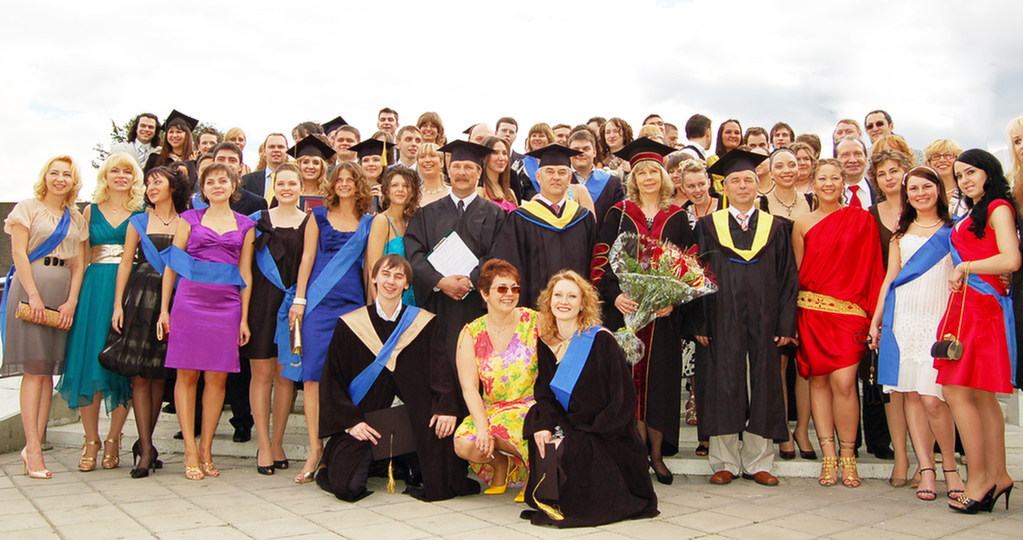
Institute of World Economy and Business (International School of Business) was established in 1990, in 1998 it became an educational and scientific structural subdivision of Peoples' Friendship University of Russian as a faculty.
The Institute is certified by the Chamber of Commerce and Industry of the Russian Federation, it became a member of the Russian Association of Business Education in 1993.
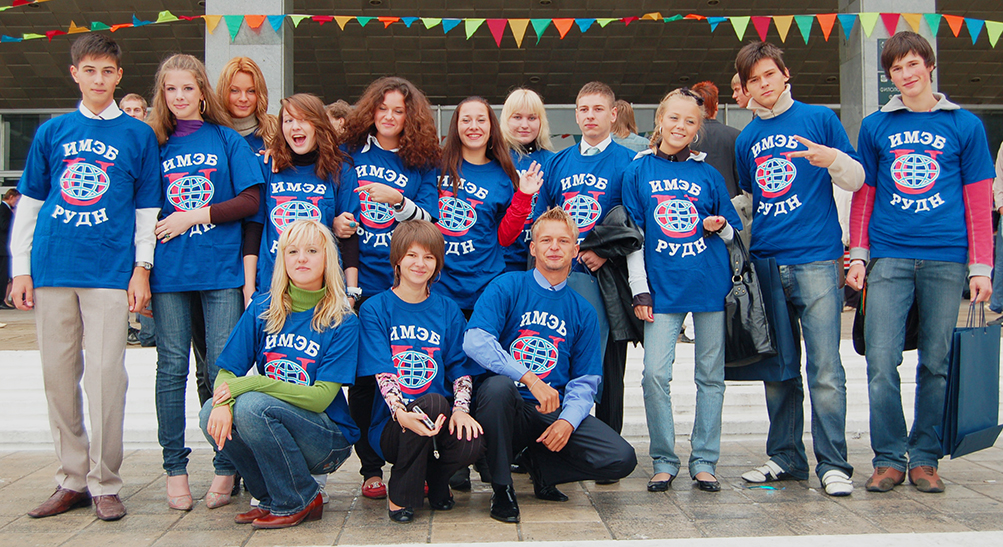
The Institute teaches "Economics" - the profile of "The World Economy"; educational programme "Advertising and Public Relations" - the profiles "Advertising" and "Public Relations"; educational programme "Management" - the profile "International Management" and educational programme "Linguistics", as well as MBA programme with specialisations" General Management", "International Business" and "Financial Management" and additional vocational training programmes. Education in some programmes are conducted in foreign languages - Bachelor's degree in French in cooperation with the University of Nice Sophia Antipolis, a Master's degree in English and Spanish in cooperation with Edinburgh Napier University and the University of Nice Sophia Antipolis.
The number of students of the Institute is growing (except for 2013). The number of enrolled students amounted to:
- 543 students in 2010-2011 academic year
- 575 students in 2011-2012 academic year
- 866 students in 2012-2013 academic year
- 695 students in 2013-2014 academic year
- 866 students in 2014-2015 academic year
The number of students and graduates according to the speciality is given in Tables 1,2 and 3.
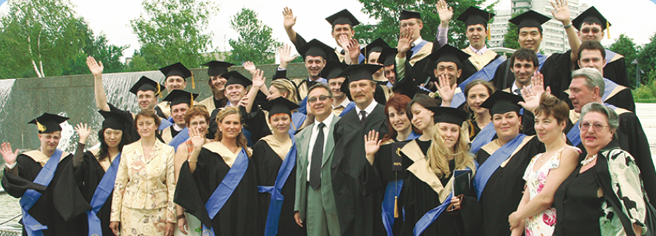
Table 1.
The number of students and graduates according to the speciality and major
(2012-2013 ac. year)
|
Study programme |
1st year |
2nd year |
3d year |
4th year |
5th year |
MA 1st year |
MA 2nd year |
Total |
Graduates |
|
080100 BA "Economics" educational programme "The World Economy" |
50 |
50 |
50 |
|
|
|
|
150 |
|
|
060600 major "The World Economy" |
|
|
|
30 |
43 |
|
|
73 |
43 |
|
031600 BA "Advertising and Public Relations" |
150 |
141 |
86 |
|
|
|
|
377 |
|
|
032401 major "Advertising" |
|
|
|
21 |
26 |
|
|
47 |
26 |
|
080200 (080500) BA "Management" educational programme "International Management" |
40 |
36 |
17 |
8 |
|
|
|
101 |
|
|
080200 MA "Management" "International Business Strategy" |
|
|
|
|
|
|
4 |
4 |
4 |
|
035700 MA "Linguistics" "Foreign Language for Professional Communication and Specialised Translation" |
|
|
|
|
|
13 |
11 |
24 |
11 |
|
080200 MA "Management" "International Business Management" |
|
|
|
|
|
12 |
|
12 |
|
|
080200 MA "Management" "International Business Management" in English ("International Business) in cooperation with Edinburgh Napier University |
|
|
|
|
|
12 |
|
12 |
|
|
080200 MA "Management" "International Business Management" joint programme with the University of Nice Sophia Antipolis |
|
|
|
|
|
12 |
|
12 |
|
|
080100 MA "Economics" "International Economic Activity" |
|
|
|
|
|
12 |
|
12 |
|
|
080100 MA "Economics" "International Economic Activity" in English in cooperation with Edinburgh Napier University |
|
|
|
|
|
12 |
|
12 |
|
|
080100 MA in Spanish «Maestria en Estudios Contemporaneos de America Latina» |
|
|
|
|
|
12 |
|
12 |
|
|
MBA programme |
|
|
|
|
|
10 |
8 |
18 |
8 |
|
TOTAL |
|
|
|
|
|
|
|
866 |
92 |
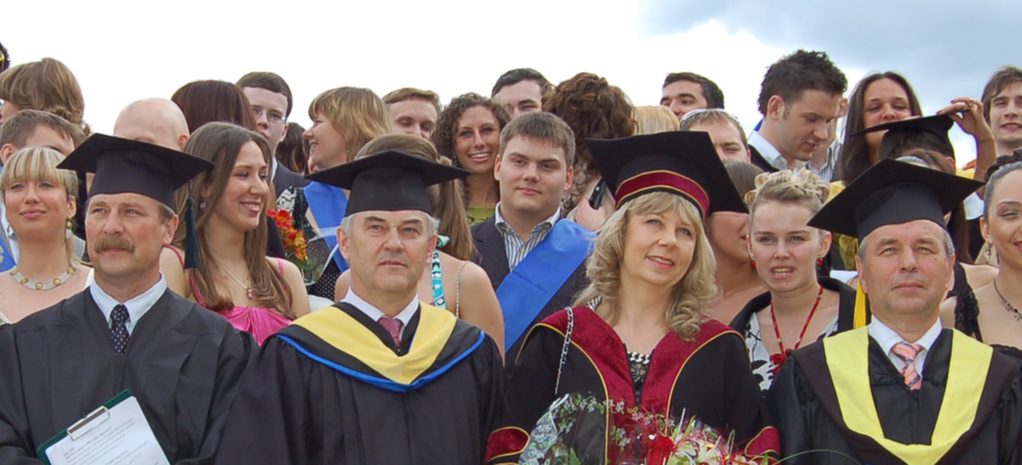
Table 2.
The number of students and graduates according to the speciality and major
(2013-2014 ac.year)
|
Study programme |
1st year |
2nd year |
3d year |
4th year |
5th year |
MA 1st year |
MA 2nd year |
Total |
Graduates |
|
080100 BA "Economics" educational programme "The World Economy" |
46 |
40 |
42 |
|
- |
- |
- |
128 |
- |
|
060600 major "The World Economy" |
- |
- |
- |
28 |
45 |
- |
- |
73 |
45 |
|
031600 BA "Advertising and Public Relations" |
92 |
123 |
77 |
- |
- |
- |
- |
292 |
- |
|
032401 major "Advertising" |
|
|
|
19 |
26 |
- |
- |
45 |
26 |
|
080200 (080500) BA "Management" educational programme "International Management" |
34 |
33 |
17 |
8 |
- |
- |
- |
92 |
8 |
|
035700 MA "Linguistics" "Foreign Language for Professional Communication and Specialised Translation" |
- |
- |
- |
- |
- |
9 |
6 |
15 |
6 |
|
080200 MA "Management" "International Business Management" |
- |
- |
- |
- |
- |
22 |
4 |
26 |
4 |
|
080200 MA "Management" "International Business Management" in English in cooperation with Edinburgh Napier University |
- |
- |
- |
- |
- |
7 |
- |
7 |
- |
|
080100 MA "Economics" "International Economic Activity" |
- |
- |
- |
- |
- |
- |
3 |
3 |
3 |
|
080100 MA in Spanish «Maestria en Estudios Contemporaneos de America Latina» |
- |
- |
- |
- |
- |
1 |
- |
1 |
- |
|
MBA programme |
- |
- |
- |
- |
- |
6 |
7 |
13 |
6 |
|
TOTAL |
172 |
196 |
136 |
55 |
71 |
45 |
20 |
695 |
98 |
Table 3.
The number of students and graduates according to the speciality and major
(2014-2015 ac.year)
|
Study programme |
1st year |
2nd year |
3d year |
4th year |
5th year |
MA 1st year |
MA 2nd year |
Total |
Graduates |
|
080100 BA "Economics" educational programme "The World Economy" |
87 |
48 |
39 |
40 |
|
|
|
214 |
- |
|
060600 major "The World Economy" |
- |
- |
- |
- |
28 |
|
|
28 |
44 |
|
031600 BA "Advertising and Public Relations" |
148 |
87 |
118 |
78 |
- |
- |
- |
431 |
- |
|
032401 major "Advertising" |
- |
- |
- |
- |
19 |
- |
- |
19 |
26 |
|
080200 (080500) BA "Management" educational programme "International Management" |
53 |
30 |
33 |
17 |
- |
- |
- |
133 |
8 |
|
035700 MA "Linguistics" "Foreign Language for Professional Communication and Specialised Translation" |
- |
- |
- |
- |
- |
18 |
17 |
- |
6 |
|
080200 MA "Management" "International Business Management" |
- |
- |
- |
- |
- |
13 |
22 |
- |
4 |
|
080200 MA "Management" "International Business Management" in English in cooperation with Edinburgh Napier University |
- |
- |
- |
- |
- |
- |
7 |
- |
3 |
|
080200 MA "Management" "International Business Management" joint programme with the University of Nice Sophia Antipolis |
- |
- |
- |
- |
- |
- |
1 |
1 |
- |
|
080100 MA "Economics" "International Economic Activity" |
- |
- |
- |
- |
- |
3 |
0 |
3 |
- |
|
080100 MA in Spanish «Maestria en Estudios Contemporaneos de America Latina» |
- |
- |
- |
- |
- |
1 |
1 |
2 |
- |
|
MBA programme |
- |
- |
- |
- |
- |
10 |
8 |
18 |
8 |
|
TOTAL |
|
|
|
|
|
|
|
|
|
Administration of the Institute
- Academic Advisor – prof., Doctor of Economics Gusakov Nikolay Pavlovich
- Director - prof., Doctor of Economics Moseykin Juriy Nikitovich
- Deputy Director for academic work - Zolotareva Marina Valerjevna
- Deputy Director for Economy - Kotenjeva Lyudmila Vladimirovna
- Deputy Director for extracurricular work - Gubanova Elena Borisovna
- Head of Programme "The World Economy" - assoc. prof., Candidate of Economics
- Aydrus Irina Ahmed Zein
- Head of Programme "Management" - prof., Doctor of Economics Efremov Victor Stepanovich
- Head of Programme "Advertising" - assoc. prof., Candidate of Philosophy Trubnikova Nina Vadimovna
- Head of Programmes "Linguistics" and "Language Competence" - prof., Doctor of Philology Malyuga Elena Nikolaevna
- Head of MBA Programme - prof., Doctor of Economics Golodova Zhanna Gavrilovna
- Head of Programme "Continuing Professional Education" - Voznyuk Nadezhda Mikhailovna
The faculty of the Institute includes 12 teachers (only professors of the Advertising Department form the faculty), among them 4 full professors, 4 associate professors and 4 assistant professors. The majority of the Institute professors are members of PFUR faculty and combine their work there with teaching in the Institute. Besides them some professors from other Universities and Research Centres are involved in teaching. State University of Management, Plekhanov Russian University of Economics, Central Economics and Mathematics Institute of RAS, Academy of Foreign Trade, the Russian Presidential Academy of National Economy and Public Administration and other leading higher education institutions of Moscow, as well as heads and specialists of different business entities.
The Mission of the Institute
The IWEB mission is in a constant desire to meet the imperatives of our time to satisfy the growing people's want of knowledge that enhances their civic and economic status through higher and further education in prestigious professions and specialities and thus ensure their competitiveness in today's dynamic labour market.
The initial mission was adopted by IWEB Academic Council in 1998. The Mission was revisited and approved by IWEB Academic Council in 2006.
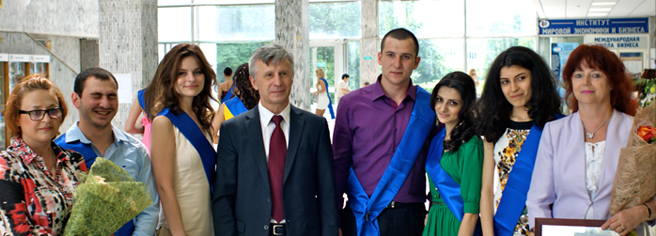
Institute Strategy
In accordance with the established practice at the University the Institute develops a medium-term strategy for the development of key strategic areas of the University activity, which is an integral part of the strategic plan of the University.
The annual plans of development aimed at achieving the set criteria are coordinated and approved by the University. Along with the plan the Institute income and expenditure budget is approved thus ensuring the implementation of the planned annual goals and objectives.
In line with the general University strategy of development for the short term and on the basis of the Mission, the key areas of the Institute activity are:
- Educational
- Scientific and research
- International
- Further vocational education
- Extracurricular
- Informatisation
- Material and technical base development
In the field of educational activity the Institute seeks to provide a high level and quality of the educational process through a real and effective quality control system, active participation in the scientific and educational communities work (teaching and methodological associations) and retaining its leadership in the field of forms, types, prevalence and intensity of innovation technology and expanding its activity in organization of educational, methodological, scientific, practical and other events both in the university and ensuring active participation of their students in different events in Russia and abroad.
In its research and development activity the Institute gives priority to the integration of scientific achievements into the educational process at all levels of training, the involvement of students in the process of scientific and applied activities, which in general will promote closer inclusion of the Institute into the world scientific and educational area.
In the area of international activity the Institute aims at ensuring its integration into the international educational community, through increased mobility of its teaching staff and students, scientific exchange, participation in scientific research and publications abroad and expansion of foreign students training.
In the area of additional vocational education the Institute takes on the task of creating a multi-level system of providing additional educational services to students, trainees, workers from various areas and sectors of the national economy.
In the field of extracurricular activity the Institute takes on the task of forming personalties who are patriots of their countries and friends of Russia, carrying the ideals of humanism, democracy and friendship among peoples and contribute to familiarising students and trainees with the achievements of the Russian and world culture.
In the field of informatisation the Institute is committed to the integration of information technology into the educational process, ensuring high standards of knowledge and use of ICT and developing students' skills of constant improving and mastering advanced equipment and technology in the field of information systems.
And in the field of development of material-technical base and overall economic activity the Institute considers that it is necessary to organise its activities in such a way as to guarantee getting revenues sufficient to meet the challenges of its development.
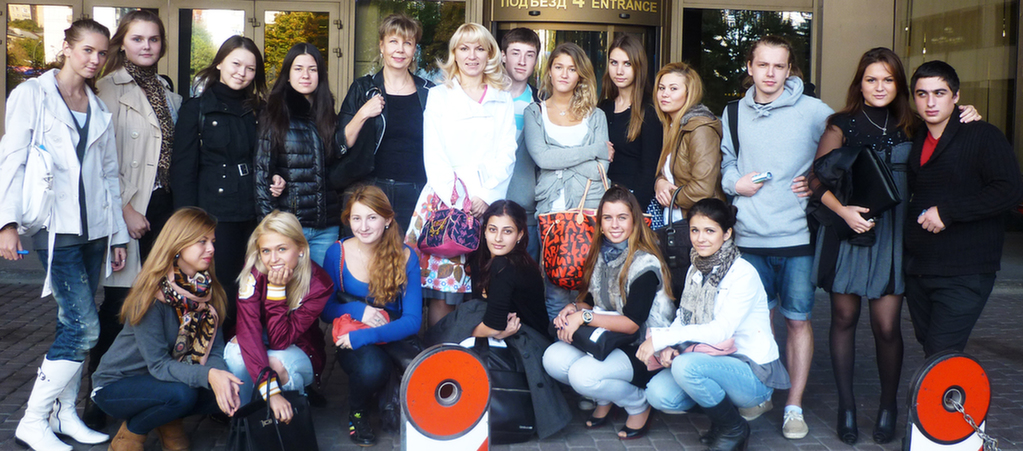
Administrative structure of the Institute
The Director of the Institute performs the general management of IWEB administrative and educational processes. The Academic Council of the Institute headed by the head of the Academic Advisor of the Institute makes decisions in the field of the strategy and Research and Development.
The Institute organisation is based primarily on the principles of programme and functional approaches. Each programme is managed by its head. There are seven programmes at the Institute, each of which is autonomous:
- Educational programme "The World Economy" (BA and MA)
- Educational programme "Advertising and Public Relations (BA and MA),
- Educational programme "Management" (BA and MA)
- Educational programme "Linguistics" (MA)
- MBA programme (further, part-time education and second qualification of "Master of Business Administration", 2 years)
- Linguistic education (second higher professional education, speciality - translation)
- Programme of further education (short- and mid-term programmes of re-training and advanced education.
Deputy Directors for academic activity, economy, science, heads of departments and services subordinate directly to the Director are in charge of functional aspects of the programes. The departments and services of IWEB are the following (Fig. 1)
- Selection Board
- Administrative office of the first higher education
- Educational and methodological office and library of MBA programme
- Financial and economic service
- Material and technical supplies service
- ICT service
- Marketing and advertising service
- Education quality service
- Department of science
The current structure of IWEB administrative structure is different from administrative structures of other Faculties of the University. The main difference is that the key element of the structure is a Programme in a separate speciality rather than a Department. All other functional offices service the programmes and act in their best interest. The Heads of the Programme are rather autonomous in their actions and have the appropriate levers of influence on the services and departments, while the heads of the departments have little capacity to influence the general service offices of the Faculties or the University.
The administration of the Programme forms the teaching staff, including teachers from different departments of the University, mainly from the Departments of the Economics Faculty. It gives the opportunity for rapid rotation of teachers who do not meet the requirements of the Programme and to employ more appropriate teachers from other units of the University or universities in Moscow, as well as business entities. It contributes to higher financial reward for the teachers involved in teaching at IWEB.
All IWEB Programmes employ 217 teachers. Educational support staff, including administrative officers of IWEB amounts to 34 people. Besides, IWEB uses the services of educational support staff of the Economics Faculty departments and other departments of PFUR (161 people), who are employed on the basis of extra payment. They are managers of departments and laboratories, who partly ensure the educational process in IWEB, for example, preparation of training materials for courses on undergraduate programmes (handouts, exam questions, tests, etc).
